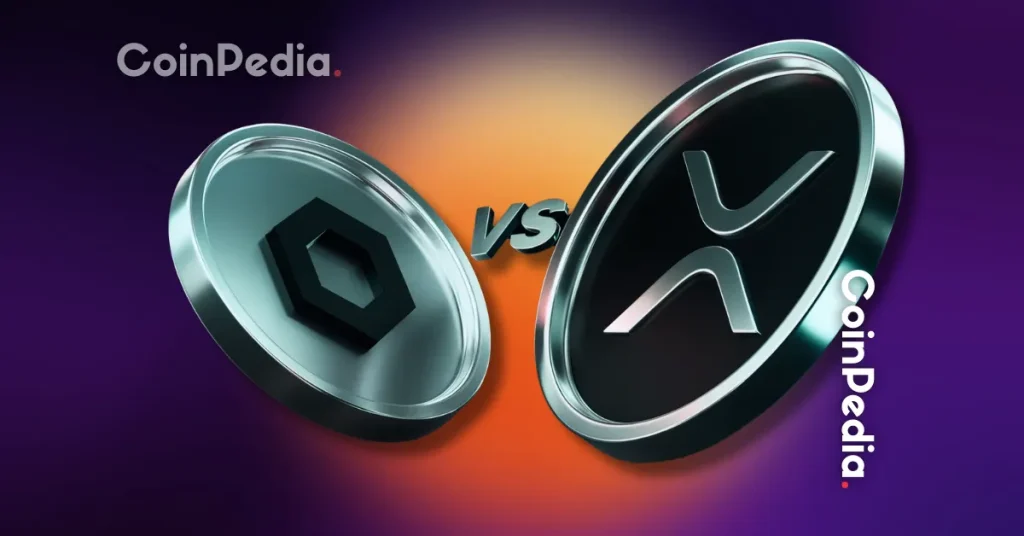BREAKING: Chainlink Poised to Dethrone Ripple in Japan’s Crypto Revolution
Japan's financial landscape shifts as Chainlink's oracle network gains institutional traction—potentially sidelining Ripple's payment corridors.
Regulatory Tailwinds Fuel Adoption
With Japan's FSA tightening scrutiny on cross-border payments, Chainlink's decentralized data feeds offer banks a compliant alternative to Ripple's centralized model. Major megabanks now integrate LINK for real-time settlement—bypassing legacy friction points.
Market Dynamics Flip the Script
Ripple's legal woes with the SEC created an opening, and Chainlink sprinted through it. Tokyo's trading houses now prioritize tamper-proof price feeds over currency rails—because apparently, trusting bankers with unverified data is so 2017.
Tech Stack Wins Over Legacy Hype
While Ripple battles courtrooms, Chainlink's nodes secure billions in value across Japan's DeFi ecosystem. The irony? Banks that once feared decentralization now pay LINK premiums for it.
One cynical take: When traditional finance adopts crypto, it’s not ideology—it’s just cheaper compliance.

Talk of chainlink replacing Ripple has been making the rounds online, and it has stirred unease within the XRP community. Many fear that Ripple could be losing ground in Japan’s financial system, a region where it once held a strong position.
Some holders are also questioning whether XRP is still part of SBI Holdings’ multi-blockchain infrastructure. With uncertainty growing, investors are left wondering if Ripple’s influence in Japan is starting to fade just as Chainlink’s role appears to be expanding.
A viral post has cited Chainlink’s unique partnership with Japan’s SBI Group to weigh the argument. Since then, the speculation has grown, but how much truth is there behind these claims? Let’s find what’s fact, and what’s fiction.
What Actually Happened?
No Official Claims Made By Ripple or Chainlink
None of the firms– Ripple, Chainlink, or SBI— made any official statement regarding Chainlink replacing Ripple. Ripple and XRP are deeply integrated in Japan’s payment corridors, which defends its position against Chainlink. XRP’s crucial role in Japan for fast and feasible cross-border transactions through SBI’s remittance and trading services clarifies that Chainlink does not threaten Ripple’s position in that region.
SBI’s New Deal with Chainlink
On August 22, SBI Holdings announced new partnerships with Circle, Ripple Labs, and the Web3 company Startale. Chainlink’s CCIP and compliance tools help SBI to enhance its infrastructure.
Is XRP Still the Key Asset in SBI Multi Stack Strategy?
The Japanese financial firm confirmed XRP’s strategic role in cross-border payments despite new blockchain partnerships. XRP remains critical for live corridors like Japan-Philippines, Thailand, and Vietnam, where it eliminates pre-funding requirements and lowers transaction costs. SBI’s multi-rail strategy highly relies on XRP for its low-cost settlements.
Summary Table: Coinpedia’s Fact Check
| Claim Made by Theory | Coinpedia’s Counter-Evidence |
| Chainlink replacing Ripple | |
| SBI partners with Chainlink | |
| XRP is the primary asset in the SBI multi-chain stack settlement |
Conclusion
| Claim | IS CHAINLINK REPLACING RIPPLE? |
| Verdict | |
| Fact Check by Coinpedia | Chainlink made a deal with SBI, but the deal does not indicate that Ripple is being replaced. XRP’s role in SBI’s financial infrastructure remains intact. |
Stay ahead with breaking news, expert analysis, and real-time updates on the latest trends in Bitcoin, altcoins, DeFi, NFTs, and more.


